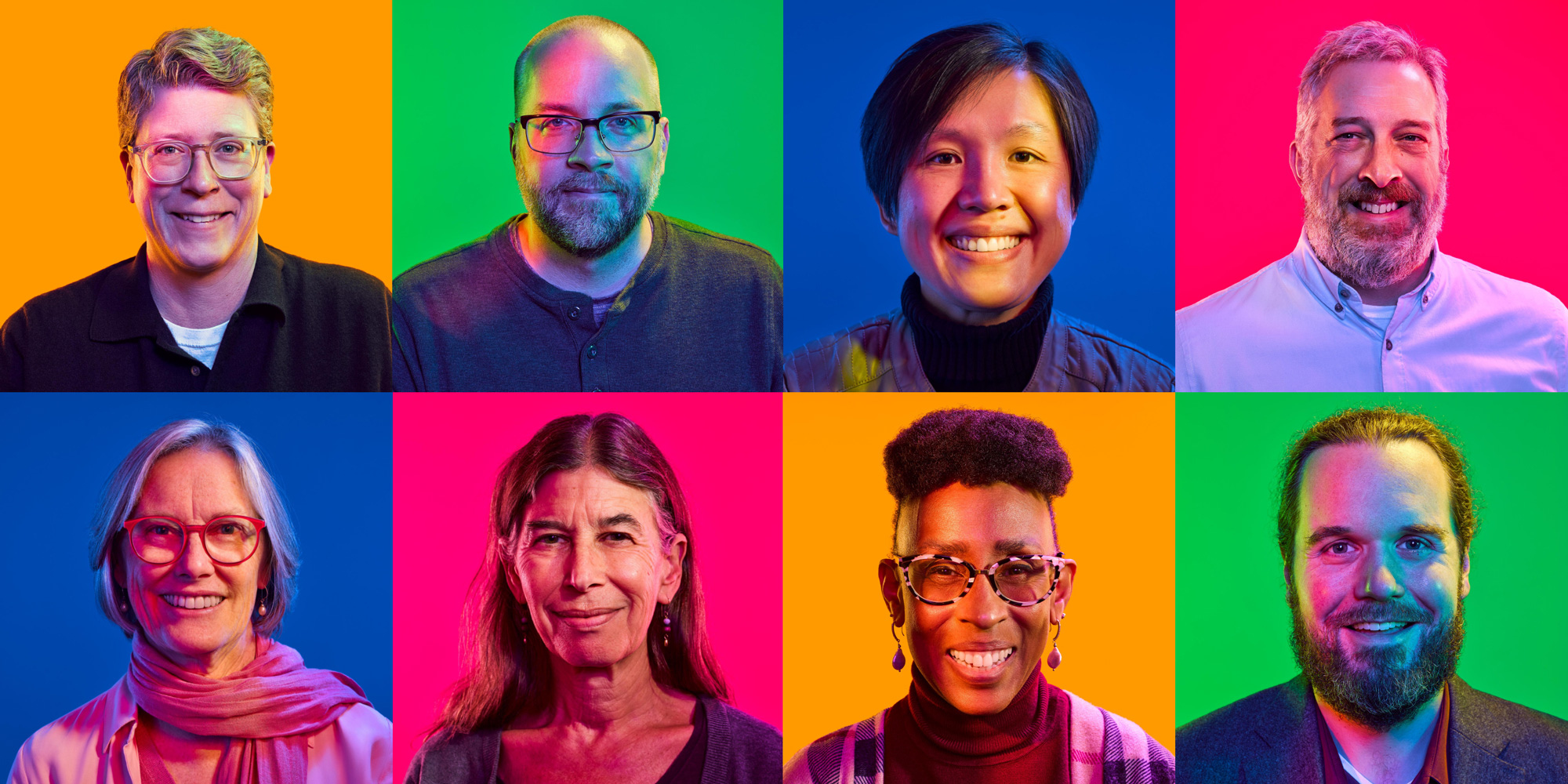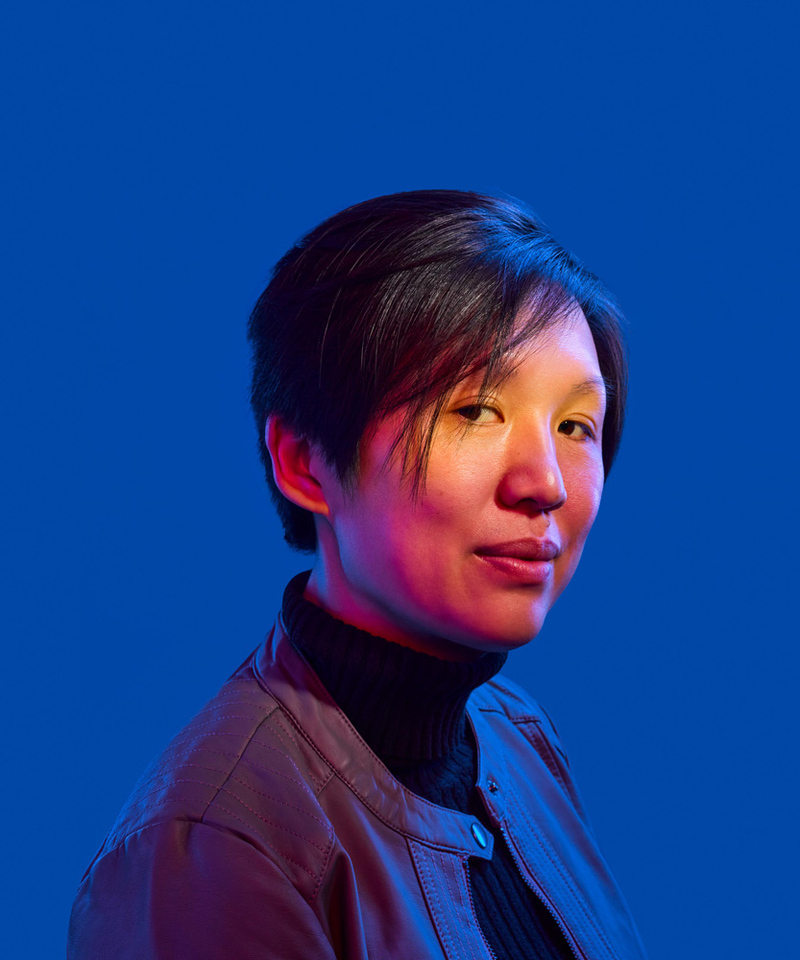
May Mei
Associate Professor
Mathematics
2013 – Present
That point when they start questioning everything
My favorite class to teach is Introduction to Proofs. It’s what I like to think of as the how-to-think-like-a-mathematician class. A lot of math classes until now relied on computation, which is important — but proofs are beautiful. It’s a writing class, and they have to think harder about what they already believe to be true and obvious. I take them through this journey where I ask them, “Why is that true?” They say, “I don’t know, Professor Mei, it’s just obviously true.” Then there’s this point in class where they start questioning everything. Toward the end they start building up their confidence again. It’s this moment in their development that I love watching.
“I don’t believe in being ‘good’ at math”
I really and truly believe everyone can do it. It’s kind of like weightlifting. Is everyone going to be a nationally competitive weightlifter? No. But can you teach almost anyone to do the lifts? Yes. A lot of people have been traumatized throughout their lives by math class. When I teach introductory classes, it’s a little bit therapy, a little bit cheerleading, and a little bit math.
Developing the skill of teaching
Since coming to Denison, and through programming from the Center for Learning and Teaching, I’ve learned to think of teaching as a skill. You can develop any skills. I think intentionally about my classes and assignments; we call it scaffolding. Students start by making some observations of things they know in the world and try to provide explanations. Scaffolding is asking a series of questions, each of which is just a small step from the next question. I tell students, “I know you and your abilities. I know you can do this. Give yourself time. I’ll be here, right behind you.”
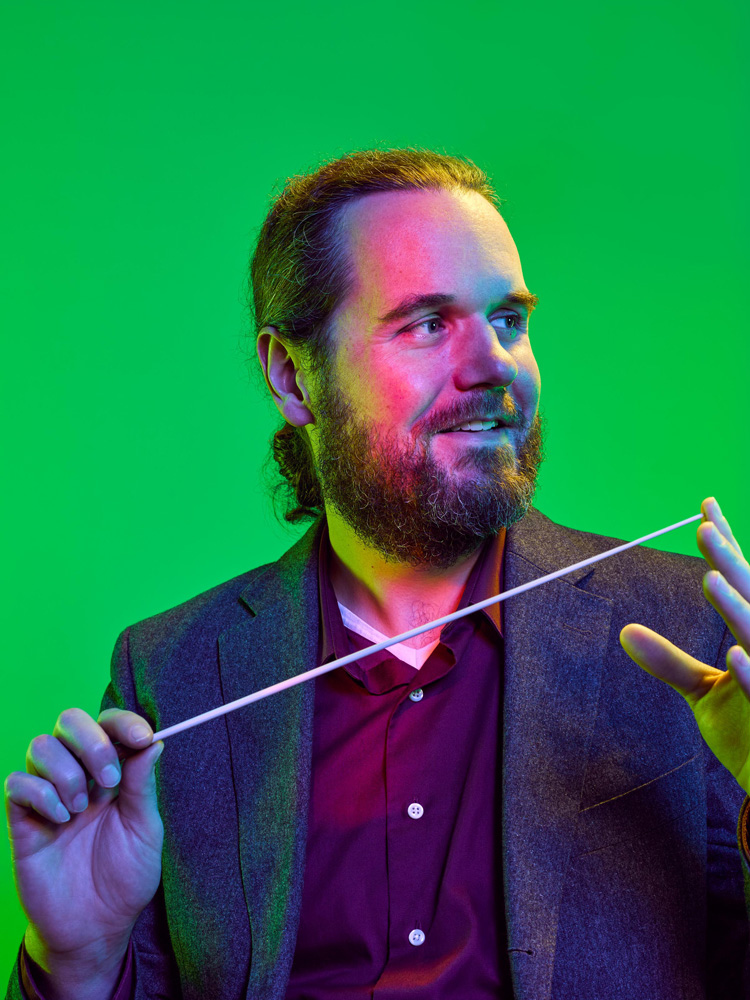
Philip Rudd
Assistant Professor, Director of Orchestras
Music, Women’s and Gender Studies
2017 – Present
“Doing the thing” together
University orchestra is a special time for musicians — whether they’re going on to become professional musicians or play in community orchestras, or whether they’re going to be patrons and supporters of music. The special context of the university orchestra is unique, being with the same cohort of students and teachers for eight semesters and the sense of community that is built through that. We’re all doing the thing together.
Looking for satisfaction in art
As artists, we live in a state of perpetual dissatisfaction. I tell my students that nobody goes to a concert to count wrong notes, and nobody leaves a concert saying, “Wow, that was great; they played all the right notes.” There’s something else that goes into that — this sense of a full commitment to the act of performance that is tied in with the unity of the group and the emotional content of the music. If we feel we’ve given everything we can and invited the audience to experience that as we go through this together, that to me is a success.
“Doing the thing” with greater independence
The conductor Benjamin Zander said that the conductor’s only power is making other people powerful. I feel I’ve succeeded in my teaching if the students are doing the thing with greater and greater independence from me. For that reason, very often in rehearsal I’ll stop conducting and let them play and figure out how to communicate. There’s a sense that sometimes, if I just get out of the way a little, their awareness is wider and more open.
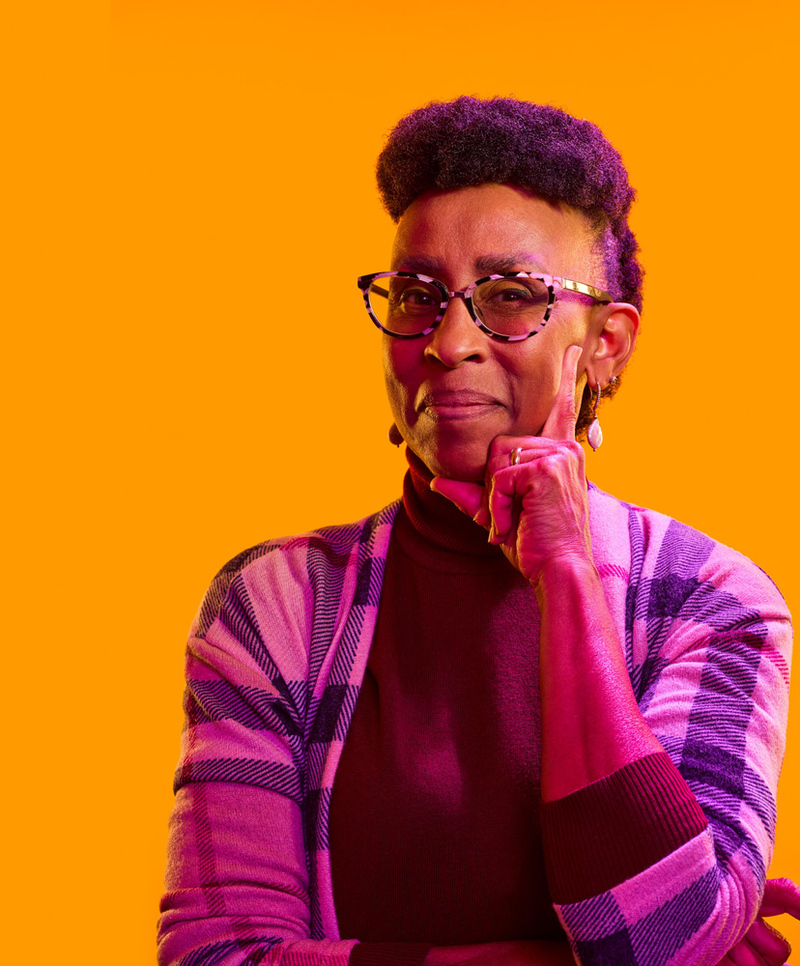
Toni King
Associate Professor
Black Studies, Women’s and Gender Studies
1997 – Present
Resisting the impulse to get too fancy
In Black studies and women’s and gender studies, students have seen really good examples of interdisciplinary research from their classwork and their professors, so they usually want to get too fancy with their own research. They’re going after the right things — topics that have implications for equity, justice, and change, and aren’t constrained by disciplinary boundaries. But we have to guide them to pare down their ideas so they can pull it off. That’s where the magic happens.
The thing that makes you get up when you’re exhausted
I’ve seen different kinds of hunger for education in every setting where I taught in the past. But at Denison, students are intentionally focused on themselves as scholars and intellectuals in a way I hadn’t seen at other places. There is a substantive presence that shapes the ethos of the Denison students I’ve been privileged to teach — a sense that “I need to understand this to participate in the world.” And when they start making those discoveries, it’s the thing that makes you get up when you’re exhausted.
Staying open to the larger purpose
I rarely give the same assignment exactly the same way twice. Once I see who the students are and what excites them, I like to build my assignments around the journey of discovery that will take them further than I thought they could go. So when they get caught up in how many pages the paper should be, whether they need to do a bibliography — those moments where they want me to tell them exactly what to do — they forget the bigger narrative. I have to help them stay open to the larger purpose they came for: to be curious and interested in their discovery.
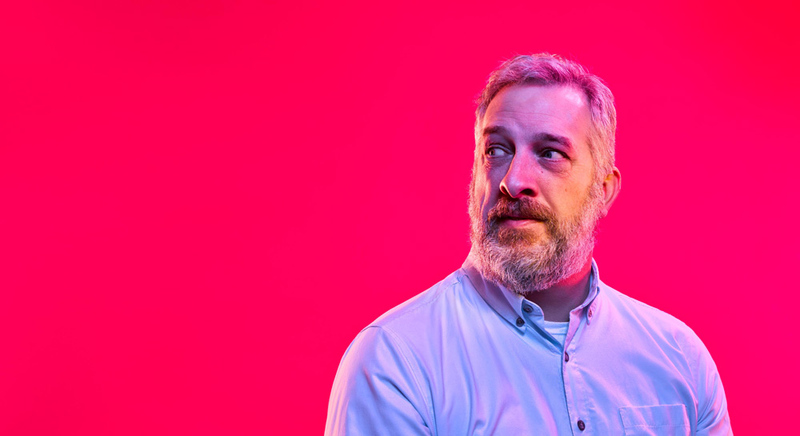
Trey Proctor
Professor
History, Black Studies, Environmental Studies, Latin American & Caribbean Studies, Digital Humanities
2005 – Present
History as empathy
Teaching history is basically the practice of putting yourself in other people’s shoes and trying to understand the choices they made and the things they thought from their historical moment. It’s also suspending the tendency to think, “This is what I would have done in that moment.” Empathy is also about diversity and power, because being able to put yourself in someone else’s shoes is putting yourself in their power dynamic.
Developing a healthy skepticism
I encourage my students not to seek capital “T” Truth but to search for small “t” truths. In our current moment, we’re inundated with information, and I want my students to be skeptical of that information and the arguments people make based on that information. I don’t want them to be untrusting, but I want them to ask questions and figure out the logic and reason underlying the arguments being made.
Solving problems with digital tools
Some colleagues and I have been working the last few years to create a digital humanities minor that will start this spring. We’ve put together a program that empowers students to create knowledge using computational problem-solving and humanistic problem-solving side by side. For example, I’m teaching a course on runaway slave ads in Ohio, so we’re using mapping to identify where enslaved people were running from and running to — seeing if we can identify patterns by visualizing data in new ways.
Receding from the classroom
One way I know I’ve been successful as an instructor is when I get to recede from whatever is happening in the classroom — those moments when all of a sudden, students take over and start talking to one another and riffing off each other. You just sort of sit back and see where it goes. When students’ eyes start shifting off me as an instructor and start looking at each other, angels start to sing. It’s an amazing moment.
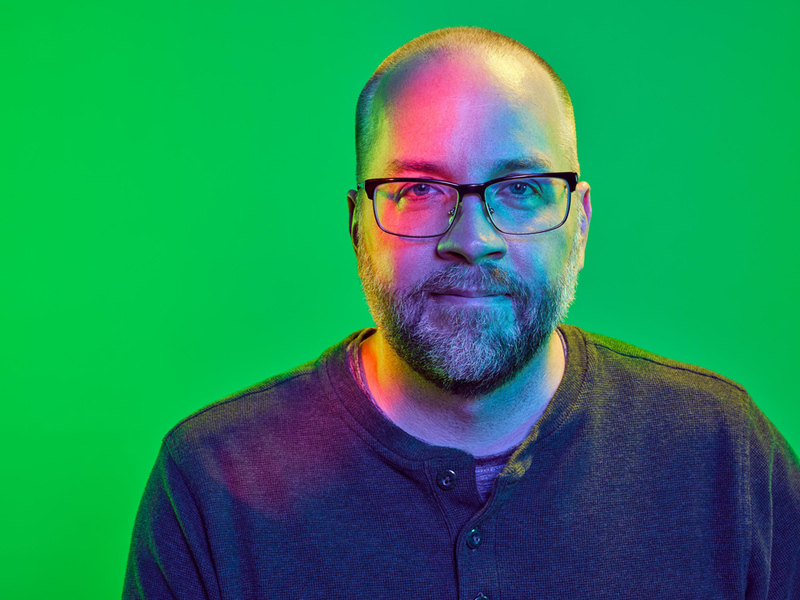
Dan Homan
Professor
Astronomy, Physics, Computational Science, Data Analytics
2003 – Present
A lifelong search for wonder
When I teach astronomy, the goal is for students to be able to see the wonder that I see in the world. I want them to go through their lives finding wonder in the things around them.
Teaching more than astronomy
I had a student once who really wanted a study guide for the final. I said, “I don’t give those out, but I could help you build one.” I explained that the process of seeing the relationships in a large, interconnected set of materials is important, and that students are learning how to learn in this class. He said, “I feel like you’re trying to teach us more than just astronomy here.” He meant it as an accusation, but that was exactly the point.
Better prepared — but more risk averse
Denison students have always been very good, but over the last five to ten years, they’re even better prepared and more ready — but they’re also less willing to take risks. I’ve had to make a bit of a shift in how I teach first-year students; sometimes a project needs a little more scaffolding to get them off the ground and running. But by their junior and senior years, they’re much better at independent projects.
Seeing the bigger picture
I ask all my advisees, “Where do you want to be in ten years?” They usually interpret that as a job. I tell them, “No, not what job do you want. I’m asking, ‘What kinds of things do you want to be capable of? How do you want to be seen by others? What role do you want to have in your communities?’” I want them to ask how the classes they take now and in the future will serve that goal of who they want to become.
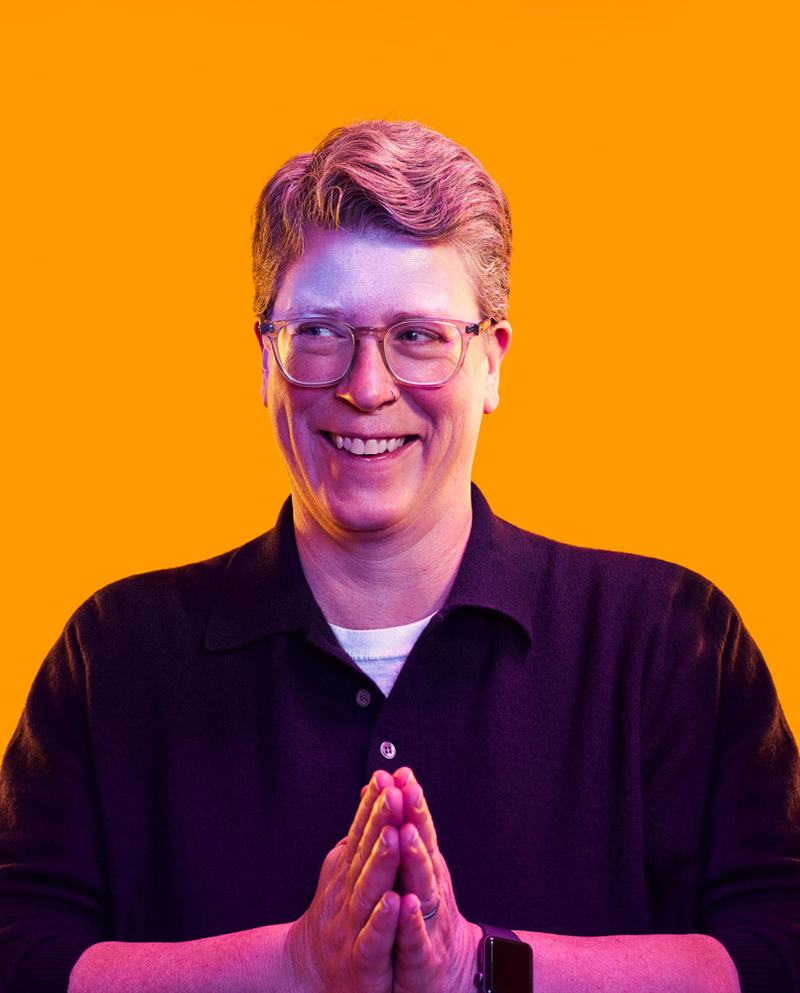
Heather Pool
Associate Professor
Politics and Public Affairs, Black Studies, Philosophy, Politics, & Economics, Political Science
2013 – Present
Those take-your-breath-away teaching moments
What always takes my breath away is this moment when we’re learning something that to me is old hat, but the students are engaging with it for the first time, and I get to watch their heads explode. And they go, “What does make a legitimate government?
I’ve been told my entire life that it’s xyz, but now you’re telling me that many societies have successfully organized around abc?” It’s an opportunity to make the familiar strange and have them look critically at our own society and the questions we may not be asking because of the inherited structures we have.
Teaching as a utopian endeavor
Teaching is an incredibly utopian endeavor, in the sense that I’m not going to know that I’ve succeeded, and neither will my students. But what I really hope is that these students who are going to go forward will ask questions, like who’s being included and who’s being excluded.
They’re not likely to remember where those questions came from, but they’re going to ask what they may not have asked otherwise, and then I may have been successful as a teacher. But I’ll never know.
Empowering students to make the world a better place
One of the things I think is really fascinating about this generation of young people is that on one hand, many of us who are older think of them as being deeply cynical. But once you push through that initial crust, they’re really interested in how to make the world a better place. They crave the opportunity to think about how we fix it.
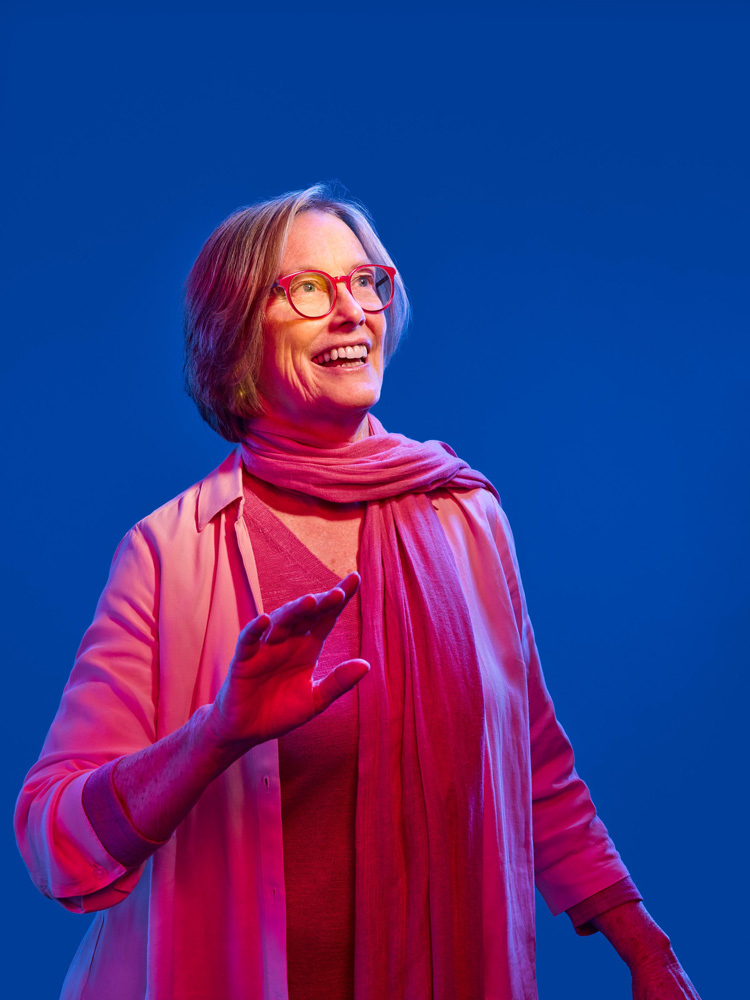
Gill Wright Miller ’74
Professor
Dance & Women’s and Gender Studies
1981 – Present
Experiencing the liberal arts through dance
I came to Denison to study math and French as an undergraduate, having never danced before. Dance was brand new to academia, and Denison was a front-runner, as one of the oldest liberal arts dance department in the U.S. Dance then was taught as you’d expect, through physical movement — but also, because it was liberal arts, through history, through cultures, through the science of the body moving, and through various methodologies that permitted and provided for research and academic legitimacy. I switched my major because I was able to engage deeply in the full liberal arts experience through dance.
A pedagogy tied to experiences of the body
When I joined Denison as a faculty member in the early 1980s, the world around me was experiencing a revelation in pedagogy. With Howard Gardner’s Frames of Mind and Mary Belenky’s Women’s Ways of Knowing in hand, I started to teach from the perspective that the early experiences of the body set the stage for differences — both scientifically and culturally — among individuals. When I mapped those experiences on my own approach to learning something new, I realized, “My students have their own set of experiences.” I started investigating what we as students bring into the classroom, each in our embodied lived experiences, and whether there is any possibility of finding experiences in the studio to fill in, reorganize, or expand those responses.
“I’m not good at _____”
I still cringe when one of my advisees says, “I’m not good at foreign language/math/the sciences.” Come on, I ask. What does that mean when you say that? Were you not exposed to it? Was it not valued in the household you grew up in? Did you try it and have a bad experience? What might happen if you approached it from a different frame? That’s been the foundation of my pedagogy: trying to unravel, in dialog with each student, what is confirmed by and what blocks their learning? And can we amend that agenda? Some things might be immutable, especially in the short time we have together, but most of the opinions we’ve formed about ourselves as learners can shift, and it’s a delight for both of us when we experience that.
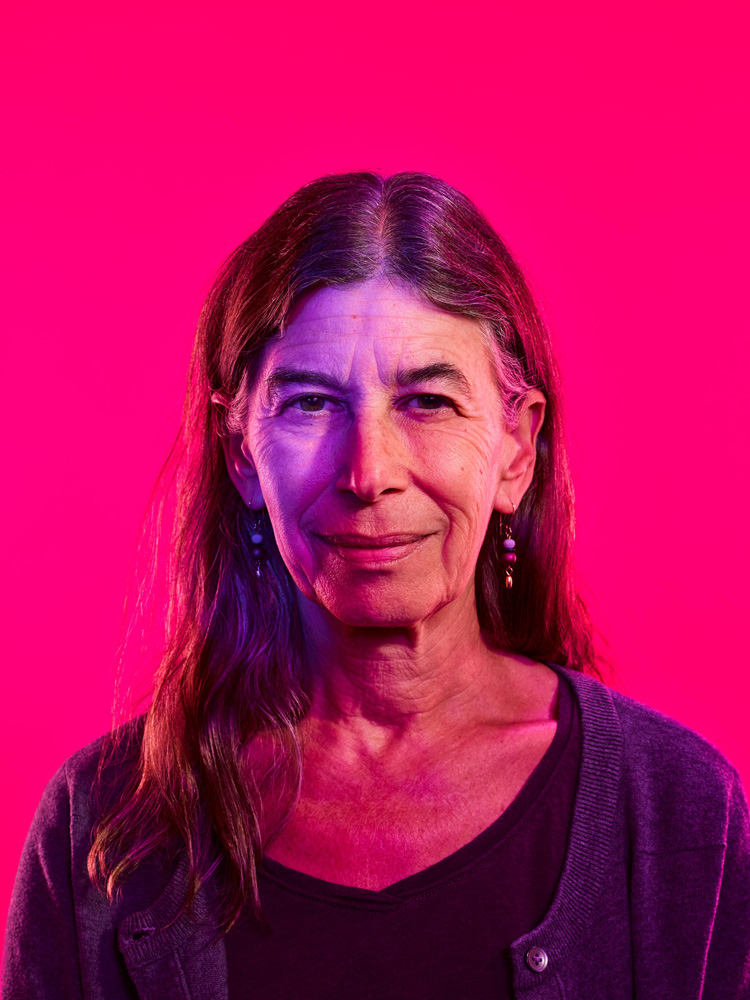
Linda Krumholz
Professor
English, Black Studies, Women’s and Gender Studies
1992 – Present
Teaching against “colorblindness”
The racial discourse of the ’80s and ’90s was “colorblindness” — the idea that race was over, and we didn’t really need to deal with it. A lot of times while teaching early in my career, I was working against that idea. Students today of all races agree that this is unfinished business that needs their attention.
Relative safety
Students today are more open to having conversations about race, but they’re still afraid to talk about it. A lot of what I try to set up in class is relative safety — not to make everyone trust me necessarily, but to help them trust the process of the class and know they’ll be heard and heard fairly.
An ongoing teaching challenge
Being a white woman who teaches Black Studies and Native American Studies, I’m always asked, “Why do you do this?” And often, the implicit question is, “What right do you have to do this?” One of the pedagogical challenges for me always is making sure that my classes begin with a conversation about how students feel about a white person teaching the course — what the limits are and how we’re going to deal with that. Just as the students are going to have blind spots and things they’re not as open to, so will I. I always have to have that self-awareness and critical lens.
Teaching judgment
Literature teaches us not to make easy judgments — it can really open students up to thinking beyond themselves. By making judgments about characters in literature, students might open new ways of judging and understanding people they meet in life — especially people whose ideas might make them uncomfortable.

